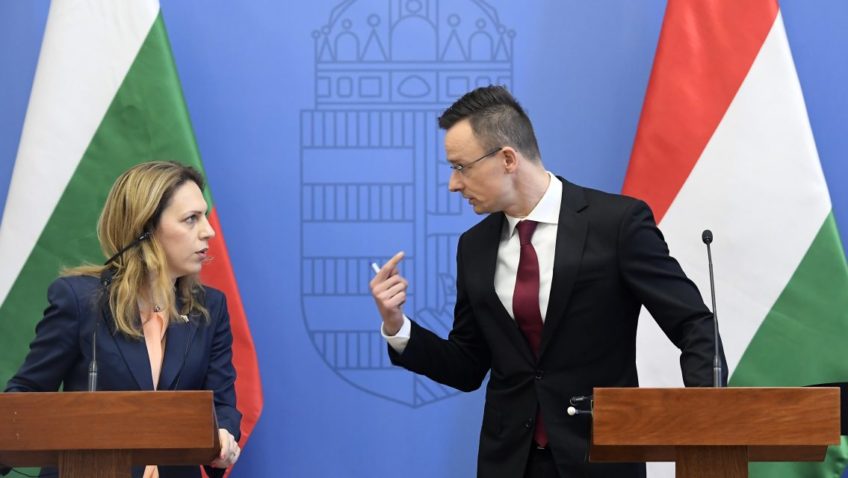Compiled by: Hristo Voynov and Kristijan Fidanovski
- A massive bus crash left 16 dead and many injured in Macedonia. The incident has drawn attention to licensing regulations for private bus companies and to the (in)adequacy of the country’s highways. The incident also contains an ethnic dimension in Macedonia’s fragile multiethnic society, as most of the victims were ethnic Albanian. Some conservative commentators have resorted to shameful they-had-it-coming hate speech.
- Belarusian president Alexander Lukashenko stated that Belarus and Russia are “ready to advance in our union”, indicating that the two are getting closer to a possible unification, though he did also state that the greater question is whether or not the citizens are ready or interested in doing so. This came up during Lukashenko’s visit to Russia, which he chose over a conference in Munich regarding east-west ties, indicating where his personal interests are. This discussion arose from an issue regarding Russian compensation to Belarus over gas payments which brought up the unfulfilled Union State treaty between the two countries. Some theorize that this is a plot for Putin to revise the constitution and allow himself to stay in power, but this is only because the timing of this is close to Putin’s final term as president of Russia. A greater question is how this would work when Russia is being targeted by sanctions from the west, including new ones this week because of the recently detained Ukrainian sailors.
- Thousands of protesters tried to enter the building of Prime Minister Edi Rama on Saturday in Tirana, Albania. They managed to go past one of the police barricades before they were stopped with tear gas. The protests were sparked by corruption allegations and the protesters demand early elections.
- Slovakia’s constitutional court is in a state of uncertainty after terms of nine of its 13 judges ended, without their replacements being chosen. This is because outgoing president Andrej Kiska made it clear he would not appoint former PM Robert Fico, a candidate who had trouble proving his qualifications to join the court. Fico heads the powerful Smer party, which submit empty ballots in order to protest Kiska’s decision, leaving no candidates with enough votes to qualify. Smer states that the new president should be tasked with deciding on the new judges, which creates an uncertain situation should anyone challenge the results of the election as the constitutional court would be the platform to do so.
- The regional protest wave in the Balkans has also hit Thousands took to the streets of Podgorica to demand the resignations of the president and the chief prosecutor over alleged corruption.
- Hungary, Slovakia, Croatia and Slovenia have signed a statement regarding the creation of a Regional Special Operations Component Command (R-SOCC). This command will start operations by 2021, and should be in full force by 2024. It is expected to bring in Austria, who is not a NATO member. Hungarian defense minister, Tibor Benkő, stated that this new command center will focus on threats from the South and the East, emphasizing the Western Balkans, but it is unclear what was lacking in the previous command structure that necessitated the need for a new one.
- In a bizarre ruling, Croatian courts have issued a 15-day prison sentence to a war veteran for disrupting the unveiling of a monument to the country’s wartime president, Franjo Tudjman. The convicted veteran shouted “war criminal” – a label that is hardly unjustified in reference to the leader of a regime that committed a series of war atrocities throughout the 1990s.
- Hungary has taken the lead in providing alternatives to Europe’s declining population problem, including financial support for families and stigmatizing or limiting abortions to ensure high birth rates. After the ruling party FIDESZ sent out a national consultation featuring politicized questions about the issue, it received large levels of support, even resulting in critics from the left wing opposition that FIDESZ’s plan doesn’t go far enough in its level and forms of support. This appears to be a strategy that Hungary is promoting in its foreign policy plan as the US and Bulgaria have both given their support for Hungary’s approach to their demographic challenges as an alternative to what FIDESZ claims is Brussels’ solution of encouraging migration into the countries.
- Albanian police has found thousands of euros in the homes of the three judges who reduced the prison term of a police killer last month. This discovery points to collusion around their ruling, which outraged the public.
- Fake news has hit Moldova, as Facebook removed a large number of accounts that were accused of spreading fake news. Unlike other countries where Russia is accused of such tactics, this disinformation campaign came from the Moldovan government. Maia Sandu, runner up in the 2016 Presidential elections from the Party of Action and Solidarity stated that these trolls were government employees supporting the Democratic Party of Moldova (DPM, which holds a majority in Parliament) and using undeclared funds, as well as calling for the DPM to be disqualified from the upcoming Feb 24th elections because of it. The government responded by claiming that these were actions done by private employees acting on their own accord, and censoring them would be a complicated task to do while maintaining freedom of speech.


0 comments